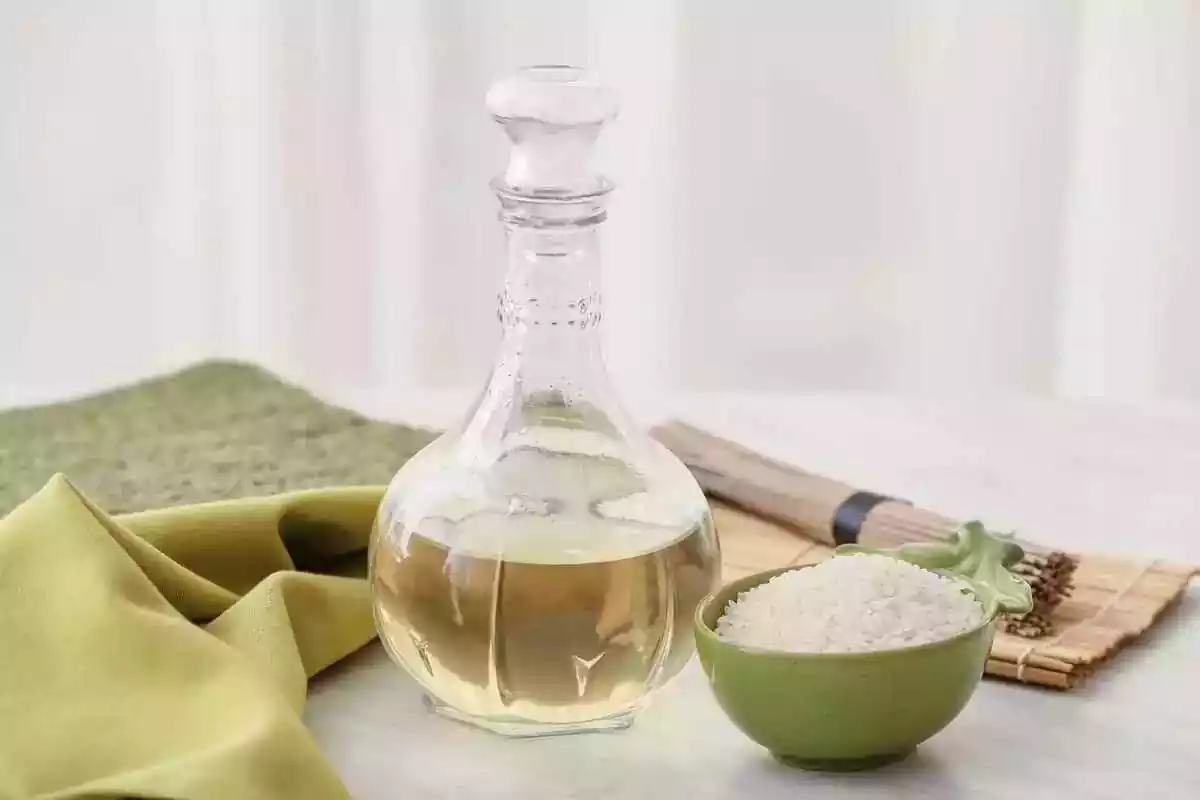It could sound difficult to believe that we can season our salads, clean our homes, and get rid of bacteria using the same product: vinegar. This all-powerful liquid has many uses and health benefits.
The taste of vinegar is not everyone's cup of tea, as they say, but it remains one of the necessary elements in homes across the world, although not many truly know the extent of its benefits.
We will explore the definition of vinegar, its uses around the house and its health properties.
What is vinegar?
Vinegar is a solution made with acetic acid, water, and chemicals that can include flavoring. The main component of vinegar is acetic acid which is obtained by fermenting ethanol with acetic acid bacteria (AAB). Any type of alcoholic beverage can be used to make vinegar.
Due to the easy manufacturing process of this smooth acidic drink, vinegar has been traditionally used either for industrial, medical, or domestic purposes.
Although many of these uses are still current, the main application is in the kitchen, as a cooking ingredient, as well as a cleaning product.
Nevertheless, vinegar possesses unlimited health benefits relatively unknown to most people which makes it a practical and versatile resource.
Types of vinegar
There are many types and varieties of vinegar depending on the ingredients used in their making.
Among the things used to produce vinegar, we have fruit, seeds, alcoholic drinks, and other fermentable ingredients.
Fruit vinegar
Vinegar made from fruit wine tends to be the most frequently used. Apple cider vinegar is the most consumed type, used both in the kitchen as well as in the household.
There is no need for chemicals in the manufacturing process of this vinegar because of the powerful fruit aromas that linger in the product.
White vinegar
White vinegar is the most aggressive type of vinegar which is why people use it so much for cleaning purposes. It is also used in canned goods and to season salads. In the case of salads, we must be careful not to use too much because its powerful flavor and acidity can cause stomach issues.
Also called distilled vinegar, white vinegar consists of a variety of vinegar made via fermentation of pure alcohol from either sugar cane, corn, or malt.

Balsamic vinegar
In the last few years, balsamic vinegar has stood out as one of the main types of vinegar as well as one of the most popular ingredients in kitchens around the globe.
Made traditionally in the provinces of Módena and Reggio Emilia, in Italy, balsamic vinegar is an aromatic type of aged vinegar.
This type of balsamic vinegar is produced from concentrated grape juice (unfermented wine) and stands out because of its dark color and, compared to other vinegar, sweet taste.
Uses and Benefits
As mentioned throughout the article, vinegar is an essential product with a variety of domestic uses and many health benefits, especially when added to our diets.
Household uses
One of the main benefits of using vinegar around the house is the fact that it's inexpensive and eco-friendly, considering it doesn't have any chemical additives. Moreover, it has a low risk of causing allergic reactions and irritations.
1. Cleans, shines, and disinfects surfaces
Mixing cold water with vinegar results in a potent cleaning and shining product safe for all types of surfaces including wood, ceramics, stainless steel, glass, and windows.
Also, due to its disinfectant qualities, this solution is effective to eliminate bacterias, especially in the bathroom.
2. Removes limescale from showers and sinks
When mixed with water and sodium bicarbonate in equal parts, white vinegar can eliminate limescale from showers and sinks.
You will only need to wipe the surface with this solution, leave it to rest for half an hour and then rinse. If the limescale has been there for a while, you will need to brush the surface before rinsing it.
3. Removes rust from metal
Either kitchen utensils or tools, a bicycle or any other metal object that has rusted, can be submerged into pure vinegar and left for 24 hours.
After this period, we remove the object and wipe it with a sponge until it becomes clean and shiny.
4. Treats hair lice
This might just be one of the most suprising benefits of vinegar. First, you need to wash your hair with your regular shampoo and then rinse with a warm solution of three parts water and one part white vinegar.
Brush with a fine comb, or special lice comb until you have removed all of the parasites. Rinse regularly with vinegar to prevent getting head lice again.
Health benefits
Vinegar has been used as a natural remedy for a long time due to its many health benefits. Among them, we can mention its disinfectant quality, its ability to lower cholesterol and blood sugar, as well as help reduce weight.

1. Eliminates bacteria and fungi
Vinegar is a potent disinfectant with many health benefits such as eliminating bacteria and fungi.
In traditional medicine, white vinegar and apple cider vinegar have been used for decades in cleaning and disinfecting nail infections, warts, and ear infections.
2. Lowers blood sugar and fights diabetes
It has been proven that apple cider vinegar possesses a powerful quality of keeping blood sugar low in patients with type 2 diabetes.
According to the studies, apple cider vinegar improves the insulin sensibility during high-carb meals and significantly reduces the sugar levels and reaction to insulin.
3. Helps with weight loss
Research suggests that adding apple cider vinegar into our diets helps increase the feeling of satiety which in turn reduces the ingestion of calories and helps with weight loss.
4. Lowers cholesterol and improves heart health
Animal studies in recent years have concluded that vinegar can help lower our cholesterol and trigliceride levels, among other factors that help boost our cardiac health.
Although these studies have yet to be concluded they still represent a major advancement in the medical sector.
References:
Johnston, C. S. & Gaas, C. A. (2006). Vinegar: medicinal uses and antiglycemic effect. Medscape General Medicine, 8(2): 61.
Coelho, E., Genisheva, Z., Oliveira, J. M., Teixeira, J. A. & Domingues, L. (2017). Vinegar production from fruit concentrates: Effect on volatile composition and antioxidant activity. Journal of Food Science and Technology, 54(12): 4112–4122.
